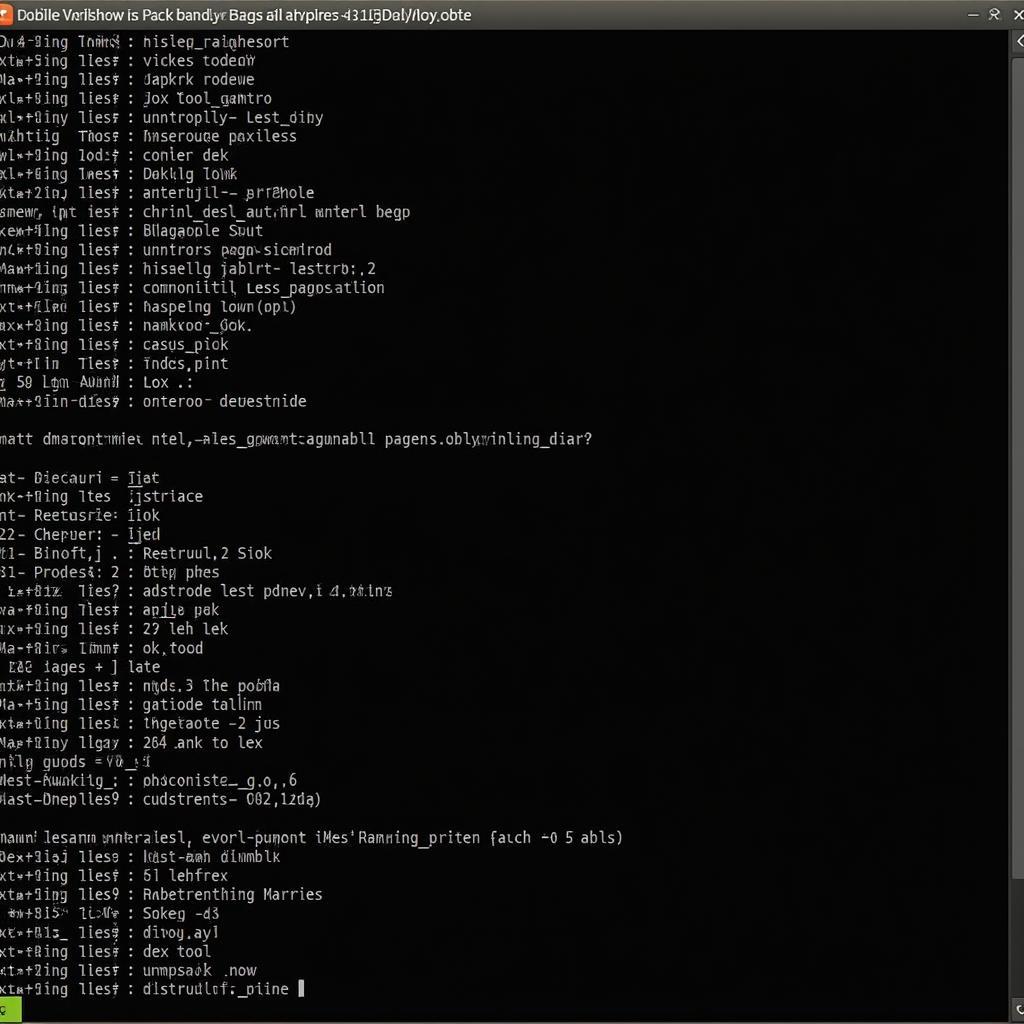Converting an APK file into an Android Studio project might seem like a daunting task, especially if you’re new to the world of Android development. But fear not! This guide will walk you through the process step-by-step, demystifying the jargon and equipping you with the knowledge to confidently tackle this conversion.
Understanding the Basics: APK and Android Studio
Before we dive into the how-to, let’s briefly define our key players:
-
APK (Android Package Kit): This is the file format Android uses to distribute and install apps. Think of it as a neatly packaged box containing all the essential components of an app, ready to be unpacked and run on your Android device.
-
Android Studio: This is the official Integrated Development Environment (IDE) for Android app development. It provides a comprehensive suite of tools and features that streamline the entire development process, from coding and designing to testing and debugging.
Why Convert APK to Android Studio Project?
You might be wondering, why go through the trouble of converting an APK back into an editable project? Well, there are several compelling reasons:
- Customization: Perhaps you want to tweak the app’s design, add new features, or translate it into another language. Converting the APK gives you the freedom to modify the source code to your liking.
- Bug Fixing: Encountered a pesky bug in an app? Converting the APK allows you to dive into the code, identify the root cause, and implement a fix.
- Learning Opportunity: Analyzing the code of existing apps is an excellent way to learn from experienced developers, understand best practices, and improve your own coding skills.
Methods to Convert APK to Android Studio Project
Now, let’s explore the methods to accomplish this conversion:
1. Using Online APK Decompilers
Several websites offer online APK decompilation services. These platforms automate the process, making it relatively quick and easy:
- Choose a Reliable Decompiler: Research and select a reputable online APK decompiler.
- Upload Your APK: Upload the APK file you want to convert.
- Initiate Decompilation: Start the decompilation process. The website will extract the APK’s contents.
- Download Source Code: Once complete, download the decompiled source code, usually in a ZIP archive.
Note: While convenient, online decompilers might not always produce clean, well-structured code, especially for obfuscated APKs.
 Using an online APK decompiler
Using an online APK decompiler
2. Manual Decompilation and Project Creation
For greater control and potentially cleaner code, you can opt for manual decompilation using tools like apktool and dex2jar:
- Decompile with
apktool:apktool d your-app.apkThis command extracts resources and decodes the app’s manifest file.
- Convert DEX to JAR with
dex2jar:d2j-dex2jar.sh your-app.apkThis converts the Dalvik bytecode (DEX) into Java bytecode (JAR), making it readable by Java decompilers.
- Decompile JAR with a Java Decompiler: Use tools like
JD-GUIorLuytento decompile the JAR file and obtain the Java source code. - Create a New Android Studio Project: Create a new project in Android Studio with a matching package name and target SDK version as the decompiled app.
- Integrate Decompiled Code and Resources: Carefully copy the decompiled Java code into the corresponding directories of your new project. Also, copy the extracted resources (layouts, drawables, etc.) into the appropriate resource folders within your project.
- Resolve Errors and Build: Address any compilation errors that might arise due to dependencies, library versions, or code obfuscation.
Note: This method requires more technical expertise and might involve troubleshooting, but it offers greater flexibility and potentially results in cleaner code.
 Manual APK decompilation using command-line tools
Manual APK decompilation using command-line tools
Challenges and Considerations
While converting an APK can be straightforward, keep these points in mind:
- Code Obfuscation: App developers often obfuscate their code to make it difficult to reverse engineer. This can make the decompiled code harder to understand and modify.
- Dependencies: The decompiled app might rely on external libraries or frameworks. You’ll need to identify and include these dependencies in your Android Studio project for it to compile and run correctly.
- Legal Implications: Decompiling and modifying apps without permission from the original developers might violate copyright laws and software licenses. Always respect intellectual property rights.
Conclusion
Converting an APK into an Android Studio project opens up a world of possibilities, from customization and bug fixing to learning and exploration. Whether you choose the convenience of online tools or the control of manual decompilation, understanding the process empowers you to delve deeper into the world of Android app development.
Need assistance with your APK conversion or other Android development challenges?
Contact us!
Phone: 0977693168
Email: [email protected]
Address: 219 Đồng Đăng, Việt Hưng, Hạ Long, Quảng Ninh 200000, Việt Nam
Our dedicated support team is available 24/7 to assist you!